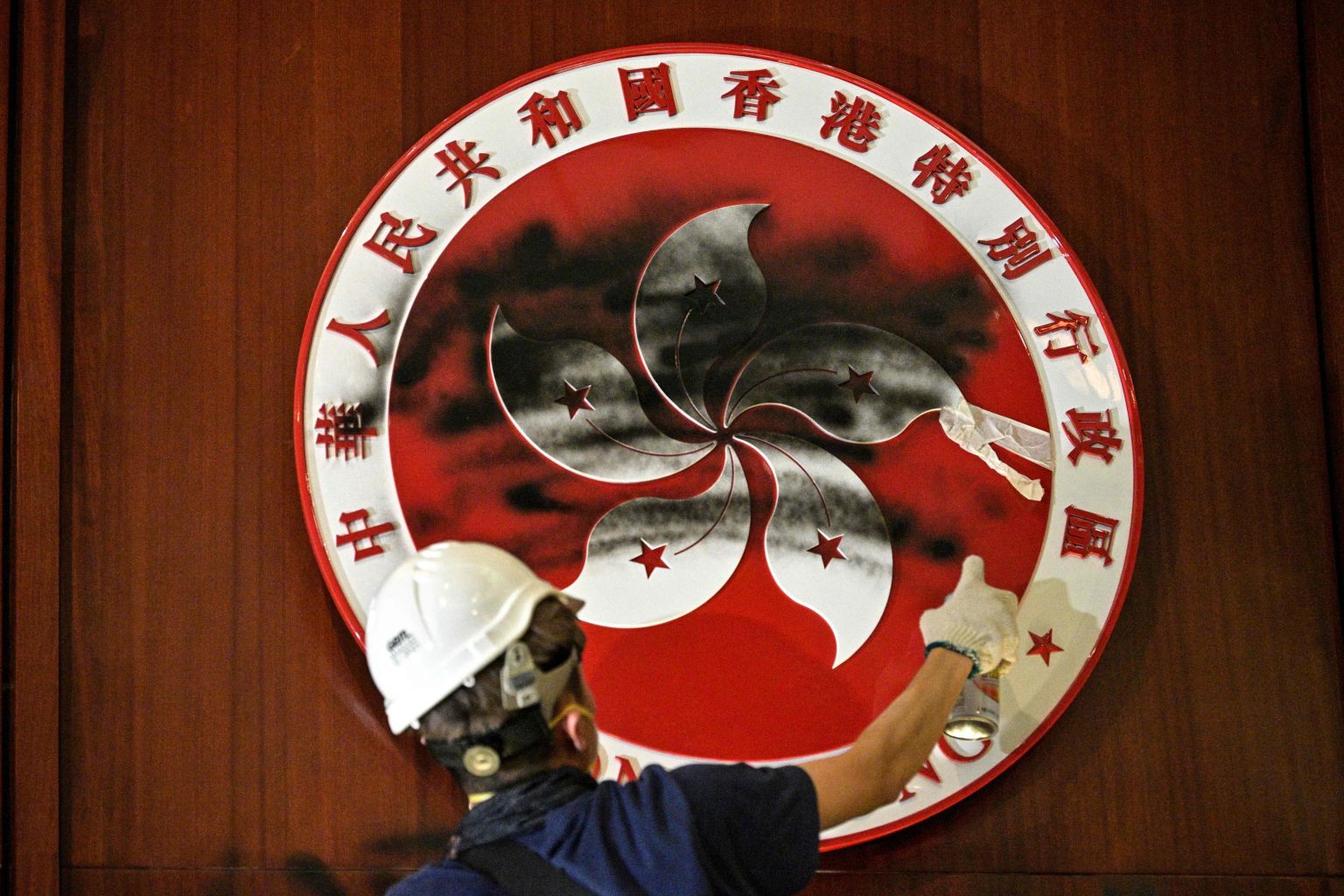Protester who defaced Hong Kong city emblem is still angry
Sign up now: Get insights on Asia's fast-moving developments

A protester defaces the Hong Kong emblem after protesters broke into the government headquarters in Hong Kong on July 1, 2019.
PHOTO: AFP
HONG KONG (BLOOMBERG) - Of all the dramatic visuals to emerge from the protests that rocked Hong Kong in recent weeks, one stands out: the defaced city emblem left by demonstrators who stormed the legislature on July 1.
The image of Hong Kong's iconic bauhinia flower covered in black paint has become a symbol of the frustrations that sent hundreds of thousands of protesters onto the streets and drove some to vandalism.
The masked 20-year-old behind the graffiti, who would only give his last name as Lau, said he targeted the bauhinia because it would be "meaningful".
As Hong Kong gears up for another round of demonstrations this weekend, interviews with Lau and others who broke into the legislature that evening suggest their anger with the government and its backers in Beijing is deeply entrenched.
While Lau is wary of becoming a police target after images of him spray-painting the city emblem were broadcast around the world, he said he still believes what he did was right.
His resolve underscores the persistent divide between protesters and Hong Kong's government.
Carrie Lam, the city's Chief Executive, suspended the extradition Bill that sparked the initial demonstrations last month but has refused to completely withdraw it or meet protesters' other demands.
This week, Hong Kong police began arresting suspects on charges related to the July 1 demonstrations.
Meanwhile, Chinese authorities have mounted a campaign of criticism, describing the invasion of Hong Kong's legislature as a threat to the rule of law.
A front-page editorial in the Communist Party's flagship newspaper, the People's Daily, blasted the protesters as "extremists" whose actions threaten to "ruin Hong Kong's reputation as an international business metropolis".
The protest planned for Sunday (July 7) illustrates how demonstrators are increasingly targeting China's overall influence on the city, rather than just the extradition Bill.
Participants will march from Salisbury Garden, an area frequented by Chinese tourists, towards the high-speed rail station that connects Hong Kong all the way to Beijing.
People want to "protest against the regime", said Wayne, a 29-year-old design freelancer who was among the first demonstrators to enter the legislature on July 1, the anniversary of Hong Kong's handover to China from Britain. He declined to give his full name for fear of being targeted by the authorities.
K.T. Li, an unemployed 23-year-old, said he may escalate his own actions in future protests because the government has failed to respond to his concerns. At the same time, he stressed that he doesn't want to harm anyone, including police.
"If they want to name me a rioter, I accept that," Li said. "But I've been forced to become one. Whether what we do is right? It's for later generations to decide."


